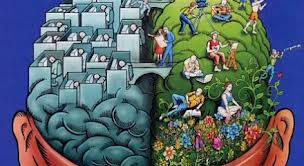The
photo accompanying this blog is of my mom and me and my dog, Lucky,
taken probably around 1940. But Lucky, wonderful dog that he was, and
who I miss to this day, is not the subject here. The subject is luck
itself, and how it has affected my life.
I bitch
a lot. About a lot of things. There is so much that I do that I don't
do well and immediately get angry with myself. I look around at
others...particularly at young, handsome, talented others, and my
chest aches with longing for what they have and I no longer do. I
keep going over my shortcomings like a rosary. But dear Lord, when I
am able to step outside myself and observe myself objectively, I have
been one lucky human being.
I was
lucky enough to be born to parents who, like all humans, had their
individual flaws and problems, and who were pretty dysfunctional as a
couple, but who loved me utterly and unconditionally. My extended
family, especially on my mother's side, were and continue to be
incredibly supportive.
I was
lucky enough to go to and graduate from college—that I was the
first in my family to do so was a great source of pride for my
father. I was lucky enough to have a wonderful military experience,
first as a Naval Aviation Cadet (I have but to close my eyes to be
soaring over and around whipped cream cloud mountains and looking
down on the green and brown patchwork quilt of the ground below) and
then as a regular sailor aboard an aircraft carrier at the height of
the cold war. I spent eight months in the Mediterranean and saw
places I (and perhaps the majority of people) could only have dreamed
about: Paris, Cannes, Rome, Naples, Sicily, Athens, Beirut, Istanbul.
I've ridden bicycles to ruined greek temples on the isle of Rhodes,
climbed a sleeping Mt. Vesuvius and passed by an erupting Mt.
Stromboli. I've walked the streets of Pompeii, had my photo taken on
a fallen pillar in front of the Acropolis, and seen the ruins of
Baalbek.
Fifty-six
years later I returned for a month in England, France, and Italy.
I've ridden vaporrato on the canals of Venice and sat having a beer
on the Piazza San Marco, revisited Vesuvius and Pompeii. Then last
year took a marvelous 16-day river cruise from Budapest to Amsterdam.
This year I am taking a tour of the Greek islands from Rome to
Istanbul.
I have
written and published more than 20 books.
Please
forgive me; I know all this sounds like insufferable bragging, but it
is said with a complete sense of awe that has nothing to do with ego.
There is absolutely nothing special about me that I should have been
so lucky to have been to all these places and done all these things.
The wonder is that I—incredibly insecure, self-deprecating me, who
is so often and so firmly convinced of my inferiority when compared
to others—have been lucky enough to have done all this in my life.
It, in all sincerity, astounds me.
Every
life is a balance between happiness and sorrow, between luck and
misfortune. Each one of us, in our time, must suffer the
indescribable anguish of losing those we love. Most of my core family
is now gone, as are so many with whom I have been close over the
years; I have not been lucky in love, despite my lifelong
hope/wish/desire to have someone with whom I could spend my entire
life. But what I have been deprived of in a single life partner, I
have been richly rewarded in a few good and lifelong friends. It's
not the same, of course, but I am grateful.
Each
life is also like a book with blank pages on which we write the story
of our life. We don't know exactly how many pages are in our
individual book, but it is easy for logic to dictate when there are
more filled pages than blank ones. I realize that I am infinitely
grateful for the story I have written of my life so far. It contains
far more pain than I would have preferred to have endured, but it is
the joy, the happiness, the small pleasures, the friends, family and
memories of all-too-short-but-wonderful times I have indeed shared my
life with others that makes all the bad things so much more bearable.
As I've
said before, be sure that when you write in your own book of life,
write large, write boldly, and use crayons!
Dorien's
blogs are posted by 10 a.m. Central time every Monday, Wednesday, and
Friday. Please take a moment to visit his website
(http://www.doriengrey.com)
and, if you enjoy these blogs, you might want to check out Short
Circuits: a Life in Blogs (http://bit.ly/m8CSO1).
















